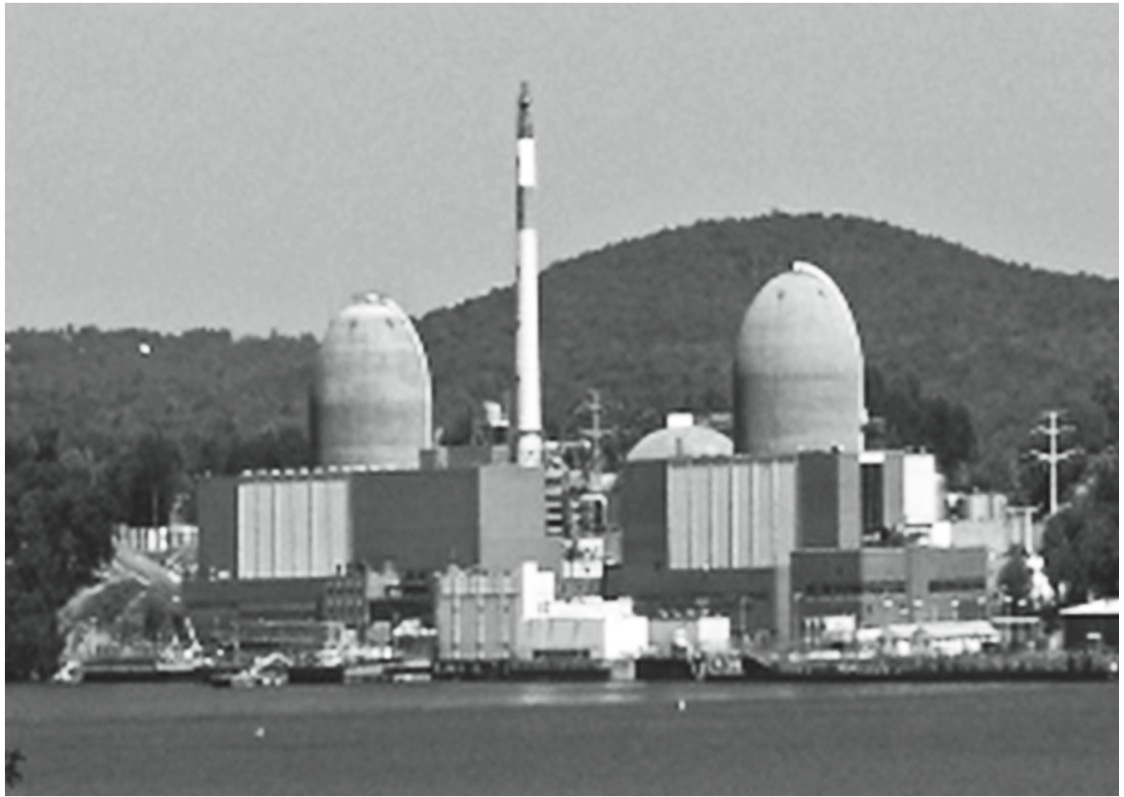March 6, 2017
By Susan Lawrence and Jurgen Wekerle
 On January 9, 2017, Governor Cuomo announced that his Office had reached an agreement with the Entergy Corporation [owners and operators of the Indian Point (IP) nuclear power plants], the NYS attorney general, Riverkeeper and others to close down the Unit 2 reactor by April 2020 and Unit 3 reactor by April 2021. In an emergency situation, the units can continue to operate another four years beyond each of the above dates. The IP 40-year license for Unit 2 expired in 2013 and for Unit 3 in 2015. Entergy had applied to the US Nuclear Regulatory Commission (NRC) to renew both operating licenses for another 20 years.
On January 9, 2017, Governor Cuomo announced that his Office had reached an agreement with the Entergy Corporation [owners and operators of the Indian Point (IP) nuclear power plants], the NYS attorney general, Riverkeeper and others to close down the Unit 2 reactor by April 2020 and Unit 3 reactor by April 2021. In an emergency situation, the units can continue to operate another four years beyond each of the above dates. The IP 40-year license for Unit 2 expired in 2013 and for Unit 3 in 2015. Entergy had applied to the US Nuclear Regulatory Commission (NRC) to renew both operating licenses for another 20 years.The announcement of this agreement is welcome news considering that IP’s units have been a critical threat to the environment, and public health and safety for many years. Located in Buchanan, Westchester County, just 36 miles north of midtown Manhattan, the plants pose potentially catastrophic dangers for many miles surrounding the plant.
The NYS Department of State (DOS) administers the US Coastal Zone Management Act in NYS. On November 6, 2015 the DOS determined that the operation of IP was in violation of Act and, therefore, DOS recommended against NRC’s relicensing of IP. Entergy filed a lawsuit, claiming that IP is exempt from the Act and sought to nullify the DOS determination.
Then on November 21, 2016, the NYS Court of Appeals ruled unanimously that Entergy’s application to renew NRC’s operating licenses for Indian Point is subject to the Act and to the jurisdiction of the DOS. Entergy could now appeal that decision in Federal court and/or petition the US Secretary of Commerce to reject the DOS determination.
In addition, the NYS Department of Environmental Conservation, using its delegated power under the US Clean Water Act, has already determined that the power plants violate the Act by not using the “best technology available,” instead employing a once-through cooling system that uses 2.4 billion gallons of Hudson River water a day thereby killing nearly a billion aquatic organisms each year, including millions of fish.
The IP agreement was signed this January to save the parties involved from further litigation. For Entergy, the plants are no longer profitable. The state decided not to subsidize IP’s continued operation as it did recently for three upstate nuclear power plants.
The governor’s announcement about the closure agreement found that there are sufficient contingency plans to meet power needs after the plants close. The State Public Service Commission has determined that recently completed electric power transmission upgrades and expanded NY Power Authority hydro power can replace IP’s generating capacity. The Sierra Club argues that the proposed construction of the Champlain Hudson Power Express power line to carry Hydro Quebec electricity from Canada to New York City is not needed to make up for lost Indian Point power.
The Club has long been a major stakeholder in the fight to close down IP. We have researched issues, argued before state and federal regulators, litigated extensively and conducted major grassroots efforts, collaborating with local and statewide organizations and other key parties. Closing down IP will send a clear message around the US and the world that these giant, deteriorating, dangerous nuclear power plants must close and that resources — financial and otherwise — be used instead for energy efficiency, conservation and renewable energy in all sectors.
Further reading
Allegra Dengler, “Close Down Indian Point” Sierra Atlantic, Spring 2016 http://newyork.sierraclub.org.